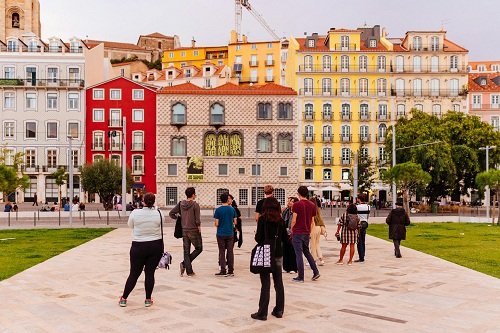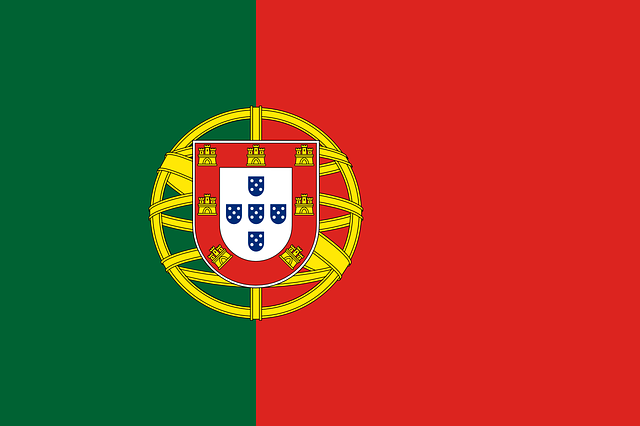Moving to Portugal may seem like a dream come true with its scenic landscapes, friendly locals, and pleasant weather. However, for many Pakistanis (and non-EU nationals), the path to permanent residency and eventual citizenship is far from simple. From navigating confusing immigration laws to dealing with language barriers, the journey is filled with obstacles.

But don’t worry! This blog will provide a detailed breakdown of the key problems Pakistanis face when seeking permanent residency in Portugal and practical solutions to overcome these hurdles.
Table of Contents
- What is Permanent Residency in Portugal?
- Why Do Pakistanis Seek Residency in Portugal?
- Key Problems in Getting Permanent Residency
- Problem 1: Complex Visa Process
- Problem 2: Language Barrier
- Problem 3: Lengthy Waiting Periods
- Problem 4: Financial Proof and Income Requirements
- Problem 5: Unclear Legal Changes and Reforms
- Solutions to Overcome These Challenges
- How to Speed Up Your Path to Citizenship
- Helpful Resources and Links
What is Permanent Residency in Portugal?

Permanent residency in Portugal allows non-EU citizens to live, work, and study in the country without the need to renew visas regularly. It offers security and stability for families and is often the first step toward full citizenship.
Difference Between Permanent Residency and Citizenship
- Permanent Residency: Right to live and work in Portugal but with some limitations (e.g., no voting rights).
- Citizenship: Full Portuguese rights, including the right to vote, work in any EU country, and access to EU benefits.
Pro Tip: Many people aim for permanent residency as a stepping stone to Portuguese citizenship.
Why Do Pakistanis Seek Residency in Portugal?

Pakistanis seek residency in Portugal for several reasons, such as:
- Better Job Opportunities: Despite wage issues, jobs in Portugal offer better income stability compared to Pakistan.
- Education for Children: Portuguese education is free for children, making it an attractive option for Pakistani families.
- Healthcare Access: Permanent residents can access Portugal’s public healthcare system.
- Path to EU Citizenship: Gaining Portuguese citizenship allows access to the entire European Union.
Key Problems in Getting Permanent Residency

🛑 Problem 1: Complex Visa Process
The first hurdle for many Pakistanis is getting the right visa to even enter Portugal. Work visas, D7 visas (for remote workers), and study visas all have different rules. Each visa requires specific documentation and approval from multiple government bodies.
Why It’s a Problem:
- Slow approval times.
- Frequent requests for additional documents.
- No guarantee of success even after submitting all required documents.
Solution:
- Hire an Immigration Lawyer: This can simplify the process and increase approval chances.
- Submit a Complete File: Double-check that all documents (bank statements, job offers, proof of residence) are accurate and complete.
🛑 Problem 2: Language Barrier

Portuguese is not an easy language for many Pakistanis to learn, especially those who only speak Urdu or English. But the government requires permanent residency applicants to pass a Portuguese language test (A2 level).
Why It’s a Problem:
- Language proficiency is required for permanent residency.
- Portuguese language courses may be costly or difficult to find.
Solution:
- Take Online Language Classes: Platforms like Duolingo and Italki offer affordable Portuguese lessons.
- Enroll in Local Language Schools: Many NGOs in Portugal offer free language courses for immigrants.
🛑 Problem 3: Lengthy Waiting Periods

The process to become a permanent resident is slow. Applicants must live in Portugal for 5 years before applying for permanent residency. After that, it takes another 1-2 years for the application to be approved.
Why It’s a Problem:
- Long waiting times lead to uncertainty.
- Applicants must renew their temporary residence permits every year.
Solution:
- Maintain Consistent Residency: Avoid long absences from Portugal during the 5-year waiting period.
- Apply Early: Submit applications as soon as you are eligible.
🛑 Problem 4: Financial Proof and Income Requirements

To apply for a residence visa or permanent residency, applicants must prove they have sufficient financial resources. Portugal requires applicants to meet a certain minimum monthly income threshold.
Why It’s a Problem:
- Many Pakistanis struggle to meet these financial requirements.
- Some jobs in Portugal pay less than the required monthly income.
Solution:
- Apply for the D7 Visa: The D7 visa is for those with “passive income” (like rent, pensions, or remote work) and has lower financial requirements.
- Keep Financial Records: Maintain accurate records of salary, bank statements, and any other sources of income.
🛑 Problem 5: Unclear Legal Changes and Reforms

Portuguese immigration laws are constantly being updated. New reforms, especially regarding “Golden Visas”, have made the path to permanent residency even more complex.
Why It’s a Problem:
- Rules change frequently, making it hard to plan for the future.
- Different rules apply to different visa categories.
Solution:
- Stay Updated: Follow the latest immigration laws on Portugal’s official immigration website (SEF).
- Work with Immigration Experts: Immigration consultants or lawyers keep track of legal changes and can offer the best advice.
Solutions to Overcome These Challenges
- Hire an Immigration Lawyer: A lawyer can simplify the application process, avoid rejections, and save you time.
- Learn Portuguese Early: Use online resources and enroll in local classes to prepare for the language test.
- Document Everything: Make sure all forms, income proofs, and supporting documents are organized and up-to-date.
- Stay Informed: Changes in Portuguese immigration laws can happen quickly, so regularly check the Portugal Immigration Website (SEF) for updates.
How to Speed Up Your Path to Citizenship

Here are some ways to speed up your journey from residency to citizenship:
- Marry a Portuguese Citizen: You can apply for citizenship after 3 years of marriage.
- Portuguese Descent: If you can prove Portuguese ancestry, the process is much faster.
- Invest in Portugal: Through the Golden Visa program (though it’s being phased out), large investors can get residency faster.
Helpful Resources and Links
- SEF – Portuguese Immigration and Borders Service – Official website for all visa, residency, and citizenship processes.
- Portugal Immigration and Visas – Official tourism and immigration information.
- Language Courses for Immigrants – List of free and paid language resources for immigrants.
Final Thoughts
Achieving permanent residency in Portugal is possible, but it requires patience, planning, and preparation. From understanding the visa process to mastering the Portuguese language, every step is a challenge. But with the right guidance, it’s possible to overcome these hurdles and even pursue citizenship.
If you have specific questions or want help with the immigration process, it’s always best to consult a licensed immigration lawyer or trusted advisor. Stay informed, stay prepared, and your dream of living in Portugal can become a reality.
Have questions about Portugal’s immigration process? Drop them in the comments below!




